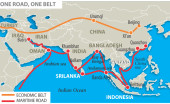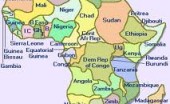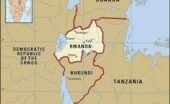So many memories, particularly of the years as neighbours on Rosemount Avenue, with shared activities, adventures and lively political discussions.…
Wednesday Night #1374
Written by Diana Thebaud Nicholson // July 2, 2008 // Americas, Canada, Economy, Europe & EU, Herb Bercovitz, Justice & Law, Markets, Microcredit, Public Policy, Reports, Wednesday Nights // 1 Comment
See photos and more on Wednesday-night.com
After last week’s fascinating and informative evening on Iraqi Kurdistan, another first. This Wednesday we are delighted to feature three brilliant young women: Anne Sophie Coleman, Katleen Félix and Emma Richez.
Anne Sophie is paying Montreal a brief visit – something to do with the Jazz Festival perhaps? – from her current job in Washington in the State Department’s Office of Intellectual Property Enforcement (this topic should ring a bell with those who recently attended the Couchiching Institute’s roundtable on ” The Death of Intellectual property?” – unfortunately no summary available on the Couch website).
Katleen, one of Guy Stanley’s great students at HEC, returns to Wednesday Night after a very long absence in New York with her young family. Unfortunately, this is a brief return as she, her husband, Pascal and children are moving to Brazil, where we understand she will continue her work as Project Manager with Fonkoze – Haiti’s Alternative Bank for the Organized Poor – the largest micro-finance institution offering a full range of financial services to the rural-based poor in Haiti.
Emma, meanwhile, has spent the past six weeks on a France-Québec exchange, working in the Elysée Office of Protocol employing her skills to ensure that all will be diplomatically perfect when President Sarkozy visits Québec for that city’s 400th festivities. Beyond that, we are sure that she will have gained many insights into the politics and policies of France, especially, we hope, what to expect of France’s presidency of the European Union as she was there when Ireland voted down the Treaty of Lisbon.
Updates
Paris emerges as EU leader in midst of controversy
The transition in EU leadership was marked by hostility and disagreement, as French President Nicolas Sarkozy accused EU Trade Commissioner Peter Mandelson of selling out European farmers. Mandelson responded by rejecting trade protectionism. Paris reserved its strongest words for Poland, which has announced that it will not be signing the Lisbon treaty. Financial Times (7/2)
Ian Traynor: The problems facing Sarkozy: Calling French President Nicolas Sarkozy a “remarkable fixer,” Guardian Europe editor Ian Traynor says that while the timetable is formidable, it is still within the EU leader’s means to bring on board the critics of the Lisbon treaty: the Czech Republic, Poland, and in particular Ireland. The Guardian (London) (7/2)
Of course, our topics will not be limited to these areas. We have topics running right through the alphabet, among them:
A for Alberta this week and the premier’s laughable plea to the U.S. to exempt the tar sands from consideration as dirty oil because of Canada’s staunch support for the U.S. in times of war;
E for the Economy or the Environment
G for the US Supreme Court decision on gun control and Guantanamo
I is for Intellectual property plan to boost China patents
L and N are for Lightfoot and nuclear and the news that AECL and SNC-Lavalin, have signed a memorandum of understanding with Jordan’s Atomic Energy Commission designed to help Jordan assess the feasibility of a nuclear power program based on Canada’s Enhanced Candu 6 reactor. Good alliance, Douglas and Steven!
U for the United States — the candidates on energy and the environment
W for World Hunger – biofuels, genetically modified crops and what, if any, alleviating influence the WTO Doha round will have on the global crisis
Z for Zimbabwe, with increasing references to the Responsibility to Protect
The Report
John Gomery
Despite the international flavor of the evening, the first topic was the recent ruling by Justice Max Teitelbaum of the Federal Court that struck down parts of Justice John Gomery’s report into the sponsorship scandal. The Chrétien camp is claiming total vindication, a slight stretch, as The Gazette editorial pointed out.
France
Nicolas Sarkozy does not fit the traditional mold of President of France, a personnage who remains somewhat majestic and aloof from the fray. He is not only politically hyperactive, but rejects the elitist image of his predecessors. Although much criticized in the first half of the past year, since he has married and Carla Bruni has demonstrated that she not only takes the role of the President’s wife seriously, but also is extremely effective in that role, his image has improved greatly.
President Sarkozy has introduced some 55 reforms, whose success (or failure) will determine whether France will again become a leader in Europe. [France’s president is reforming his country more determinedly than many expected] The President’s reforms are popular (an approval rating of 55%) , in fact, more popular than he is.
While the majority of the French workforce find it unrewarding to work hard, at the national political level, politicians and support staff are putting in very long hours to effect the changes that their indefatigable President insists upon.
On the eve of France’s assumption of the presidency of the European Union (accompanied by President Sarkozy’s declarations that the EU must change), cracks in EU unity have begun to appear with first Ireland, then Poland refusing to ratify the treaty of Lisbon. However, pointing to the failure of the Meech Lake accord in Canada, Wednesday Nighters believe that the drama will continue without at all undermining the strength and influence of the European Union. More worrying is the profound disagreement between President Sarkozy and Peter Mandelson over trade barriers and the Doha round of WTO talks.
The Economy
Goldman Sachs’ current financial difficulties have added to the woes of the financial sector, traditionally based on trust. Brokerages and banks have always been touted as blue chip investments although banks traditionally leverage loans to investments at ten to one. Goldman Sachs extended themselves by levering 30 to 35 times, leading inevitably to their current crisis. It appears that the trust on which the financial sector has been traditionally based has not always been justified. What has happened is that supervisory boards have been completely overwhelmed by new highly leveraged products that neither supervisors nor investors fully understand. What is certain is that bank dividends cannot be maintained at historical levels even if new money is invested. We have not seen the full picture in Canada yet; especially with regard to how much of the banks’ transactions was highly leveraged. As the magnitude of the problem becomes clear and investors flee the banking sector, the overreaction will undoubtedly represent a buying opportunity for informed investors. Wednesday Night’s technical guru predicts that overreacting investors will cause the market to bottom out by the end of July followed by a corrective turnaround.
The good news is probably the end of the bad news – all of the things we were worried about have come to pass. Although petroleum and food prices have risen, inflation is not considered to be excessive. Housing prices are said to have peaked.
Not directly related to, but brought into focus by the petroleum crisis, is the imminent virtual bankruptcy of General Motors, which will most probably be avoided by action on the part of the U.S. government. GM, an icon of the evolution of the motor vehicle, should have foreseen the inevitably of the decline in availability of affordable petroleum some thirty years ago and developed alternative products.
Intellectual Property Rights
Protecting intellectual property is an expensive exercise, as to do so effectively the patent or trademark holder must vigorously pursue any infringement in whatever country it takes place. It therefore becomes an issue of risk management, especially for smaller companies with budget constraints. Furthermore, there is often an erroneous assumption that registration of the IPR in the country(ies) where it is exercised grants worldwide protection. Although a signatory of WIPO, China is frequently cited as a nation where there is a high rate of infringement. Whether China’s new IPR strategy will help to correct the situation remains to be seen.
Micro financing
Microcredit is gaining popularity in developing countries, giving power to the community and to women and alleviating poverty. The model that is best known is the Grameen Bank whose founder is Nobel Peace laureate Professor Muhammad Yunus, although at the other end of the spectrum is Mexico’s Compartamos, now a public company, which critics maintain has distorted the concept.
Microcredit takes many forms that are far older than the term. It has been practiced for many years in Québec by les Caisses Desjardins which lend money to small entrepreneurs and help them establish themselves in the business world. In the nineteenth and twentieth centuries, newly arrived immigrants to Montreal were offered interest free loans by the Hebrew Free Loan Association. There currently exists a similar organization in Montreal for visible minorities and people on welfare that offers coaching in business concurrently with loans.
Today, microcredit loans encourage community groups in developing countries to work interdependently to gain the knowledge and independence that will enable them to contribute to their community to a far greater extent than previously possible. Paradoxically, in Haiti, well intended donation of free food provides unfair competition for the food for sale by micro-financed enterprises there.
With increasing success, it is possible for individuals to invest in microcredit enterprises on the Internet or on the New York market.
[In Canada, Citizens Bank provides a global microcredit investment product, the “Shared World” term deposit. Among credit unions, VanCity offers a similar product aimed at helping immigrant and refugee entrepreneurs build their credit ratings, access loans and gain Canadian experience. Other organizations, such as Oikocredit and Kiva offer Canadians ways to invest non-RRSP funds to support microcredit.
Web-based Kiva, reportedly the fastest growing non-profit in history, has funded more than 26,000 loans around the world, with a 99.8 per cent repayment rate. The Kiva website allows investors to lend to specific entrepreneurs in $25 increments and monitor their progress along the way.
Sadly, Canada’s six big banks are among those conspicuously missing from the picture, as are all the major investment funds. Poverty News]
BCE
The Supreme Court of Canada has unanimously overruled (7-0) the Québec Court of Appeal’s decision (unanimous 5-0 in the other direction) relating to the sale of Bell Canada to the Ontario Teachers Union. While not in itself a cause for concern, it does raise the question as to whether Québec is out of step with the rest of Canada in aspects of business law. In the past five years, the Quebec Appeal Court has issued six unanimous decisions on commercial litigation, all of which have been reversed by the Supreme Court – this fact casts doubts on Quebec’s ability to market itself as a world-class place in which to do business.




One Comment on "Wednesday Night #1374"
Here an article from the Nouvelliste in Haiti
« La diaspora haïtienne est prête à supporter les plans de développement des communes et leurs initiatives de développement des filières », a assuré le chef de projet, Katleen Félix, qui a précisé que le problème réside dans la disponibilité des informations et projets sur les besoins réels des communes et sections communales du pays. Katleen